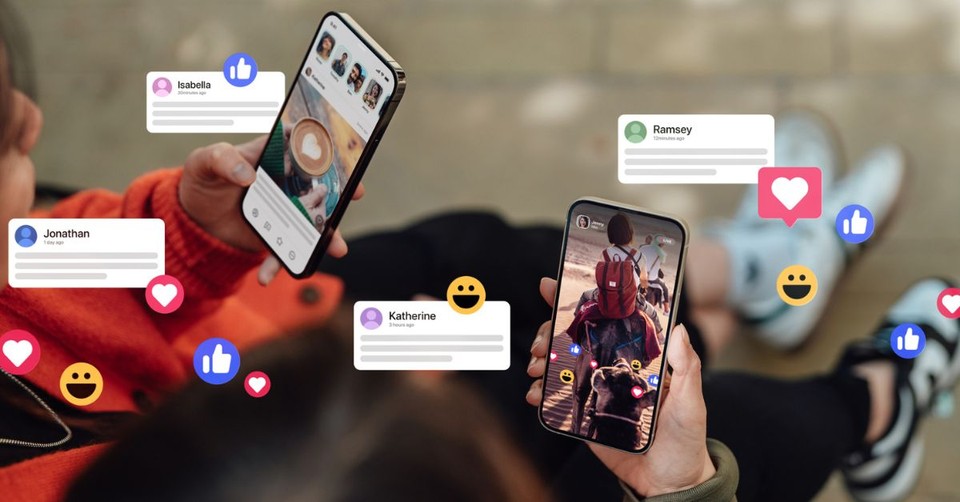4 Ways to Spot Fake News on Facebook and Why It Matters to God

Did you read the story about the sports legend who donated $50 million to Texas flood relief? Or the one about the A-list Hollywood actors who are launching a $4 billion “non-woke” film studio? Or maybe you read about the 27-year-old Connecticut police officer who went missing… without a trace.
Those three stories spread like wildfire across social media, racking up countless shares and passionate reactions, yet not a single one was true.
Years ago in the United States, we had the National Enquirer and the Weekly World News -- grocery aisle tabloids that thrived on the sensational and spread half-truths and fabrications just to make a buck. We laughed, but then collectively dismissed them as utter nonsense.
Today, we have Facebook -- as well as X, YouTube, and countless other digital platforms to pump out misinformation. Yes, you can find some real news there, but it’s largely flooded with clickbait, half-truths, and outright fabrications -- all to drive traffic and rake in ad revenue from your attention.
Unfortunately, millions of Americans -- including many Christians -- are falling for it. A 2021 study revealed that misinformation and falsehoods on Facebook received six times more clicks than factual news. As the old saying goes, “A lie can travel halfway around the world before the truth has a chance to put its shoes on.”
Additionally, a 2024 study found that Facebook’s algorithm encourages users to habitually share attention-grabbing content, even if it’s false. In fact, just 15 percent of the most frequent news sharers were responsible for up to 40 percent of the misinformation, driven more by habit than intention.
It’s a biblical issue. Christians are called to be people of the truth (Ephesians 4:25), not fearmongers and gossipers who recklessly spread rumors just because a sensational headline lined up with their beliefs.
Sharing lies -- even unintentionally -- damages our witness to a lost world and blurs the line between gospel truth and worldly deception. In an age of digital noise, Christians should be known for standing firm in truth -- not adding to the confusion over what is fact and fiction.
Put another way: It’s hard to speak about Jesus with integrity when your online presence reeks of falsehood.
That said, even with the best intentions, it can be hard to discern what’s true and what’s not. I recently watched what seemed like an innocent video about food origins with my 9-year-old -- only to realize hours later it was clickbait filled with misinformation.
If Christians are to be light in the modern world, we must be diligent in seeking truth.
Here are four ways you can spot fake news on Facebook.
Photo Credit: ©Getty Images/Oscar Wong
1. Verify Before You Share
If Mark Wahlberg and Mel Gibson really had teamed up to launch a $4 billion “non-woke” studio -- as one viral (and false) meme claimed -- it wouldn’t just live on your great-aunt’s Facebook feed. It would be everywhere, from right-leaning outlets to left-leaning ones.
Facebook is great for wishing friends a happy birthday, scrolling through baby photos, and keeping up with vacation snapshots. But when it comes to news, though, it and other social media platforms are -- largely -- trash. If a post doesn’t link to a reputable outlet, there’s a good chance it’s more fiction than fact.
Before you share a story online, take a moment to verify it with a simple keyword search. Chances are, it’s not true.
Weeks ago, the East Haven (Conn.) Police Department issued a statement urging the public to stop sharing false claims on Facebook that a 27-year-old officer had been kidnapped. “Doing so only spreads misinformation,” the department said.
East Haven police tried, unsuccessfully, to have the post removed. Guess what? It’s still circulating on Facebook -- and people are still believing it.
This challenge will only grow more difficult as AI-generated videos continue to flood our feeds. A recent clip featuring lifelike news anchors falsely claiming that Canada had invaded the United States illustrates just how dangerous this technology can be, since every person in the video was entirely AI-generated.
Videos once offered proof of what happened. Now, they’re just as likely to blur the line between fact and fiction.

2. Stay Healthily Skeptical
God wants His children to walk with wisdom and discernment -- to not be gullible and fall for every headline. Proverbs 14:15 warns, “The simple believe anything, but the prudent give thought to their steps.”
On Facebook, you’re not just a participant -- you’re the customer in a profit-driven system designed to grab your clicks, trigger your emotions, and, yes, make you believe almost anything. That’s how shady companies and clickbait farms rake in money. Sadly, fake news isn’t just deceptive -- it’s profitable.
It’s a goldmine for Facebook, too. After all, fake news keeps users on the platform, drives them to share, and fuels the kind of engagement that translates into big advertising dollars.
When I spot fake news on Facebook, I report it as “false information” -- and yet, the platform rarely takes action. That’s because its primary goal isn’t to build a truth-centered platform; it’s to maximize profit.
And society -- sadly -- is the victim.
Photo Credit: ©Getty Images/Igor Alecsander
3. Love the Truth, Not Just the Headline
Somewhere in the past few decades, news morphed into entertainment. Major trials were branded “the trial of the century.” Elections became “the most important of our lifetime” -- every single one framed as do-or-die. And then we split into teams, where everything -- the beverage in your cart, the movie at your theater, and even the razor blade in your cabinet -- supposedly signaled something about your politics and values.
Like sports fans, we began to demonize the opposition -- mocking, vilifying and eventually dehumanizing them. But unlike sports, this wasn’t just a game on the line -- it was truth itself.
It’s helpful to ask: Have we so demonized our political opponents that we will believe anything about them -- no matter how outlandish? Do we accept every positive claim about our own side as truth, ignore the negative, and reject even the possibility of nuance?
The God of truth wants us to be people of the truth. Consider this: The Bible wasn’t written like today’s headlines -- only highlighting the good in those with whom we agree. It told the truth, even when it was uncomfortable. Scripture tells us Moses was a murderer, David an adulterer, and Peter an apostle who denied his Savior three times.
Sometimes the people we admire fall short, and those we oppose get things right. And that’s OK. That’s how it’s always been.
Years ago, we often asked, “What would Jesus do?” when faced with ethical decisions. It’s time we apply that same wisdom to our social media habits.

4. Pray for Wisdom
Discerning fact from fiction isn’t always easy. Thankfully, we have assistance from above.
James, the brother of Jesus, wrote in his letter to the first-century church: “If any of you lacks wisdom, let him ask God, who gives generously to all without reproach, and it will be given him” (James 1:5).
It’s always a good idea to pray for wisdom -- but especially during a time when lies so often wear the mask of truth. Every day, my inbox is filled with scammers urging me to pay fake bills or purchase bogus products. I receive texts from unfamiliar numbers that appear to be from friends, but are actually fraudsters trying to steal my money. And then there’s Facebook, where misleading headlines and AI-generated videos spread misinformation with every scroll.
It’s easy to long for an earlier, simpler era -- one without deepfakes, phishing scams, and mass-scale disinformation. But God placed us here, in this time, in this place, for a reason. He wants us to be clear voices for truth in an age of confusion -- to think carefully, click wisely, and shine His light in a world clouded by lies.
He has called us to be people of truth. Even on Facebook.
Related Resource: The Holy Spirit Grants Us Discernment
Photo Credit: ©GettyImages/MangoStarStudio
Originally published July 25, 2025.








